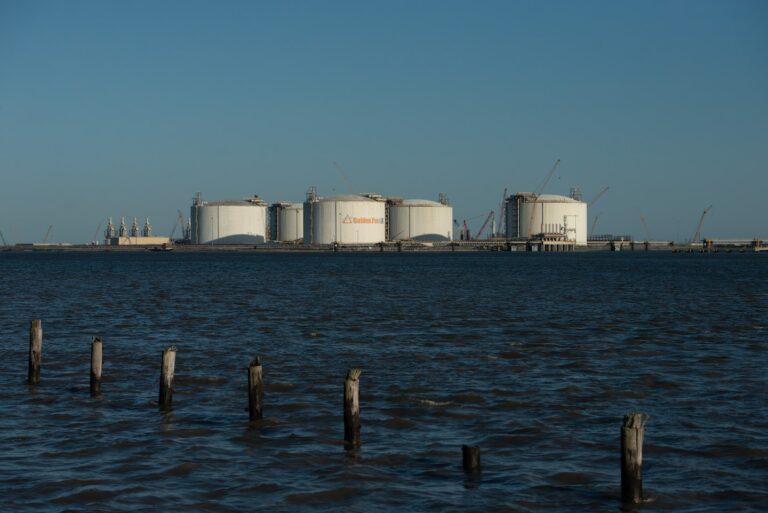The decision is the latest example of how the judiciary is increasingly constraining President Biden’s climate change goals at the urging of conservative and corporate opponents. Last week, the Supreme Court’s conservative majority handed down two decisions that dramatically limit the power of federal agencies to address climate change, air pollution and other pressing environmental issues.
The White House announced in January that it would temporarily halt approvals of new liquefied natural gas (LNG) projects while the Department of Energy studies the climate change, economic and national security impacts. The president’s directive means approvals for nearly a dozen LNG projects will be delayed until after the November election.
The moratorium did not affect LNG projects already approved or under construction, but Republican attorneys general from 16 states argued that the White House illegally circumvented the regulatory process to issue the moratorium order, and said it would deal a devastating blow to fossil fuel-dependent economies.
Louisiana Attorney General Liz Murray, a Republican, praised the ruling on Monday, calling it a “major victory for American energy.”
“As Judge Kane stated in his ruling, this unlawful moratorium puts our state at risk of losing approximately $61 billion worth of infrastructure,” Murrill said in a statement. “LNG has an enormous positive impact on Louisiana, supplying clean energy around the world and creating good jobs here at home.”
“The Department of Energy does not agree with today’s ruling. The Department continues to review the court’s order and consider next steps,” Energy Department spokeswoman Charisma Troiano said in an email.
The ruling means the Department of Energy must resume reviewing permit applications for new LNG export projects, but it’s unclear how quickly the department will act. The Natural Gas Act says only that the department must “expeditiously” determine whether the projects are “in the public interest.”
U.S. LNG exports have doubled over the past four years. Projects already approved and under construction are expected to double U.S. LNG export capacity again over the next four years. Nearly all of these projects are Located along the Gulf Coast, the industrial region stretches primarily between Louisiana and Texas and is already home to many petrochemical plants.
Roischetta Ozané, founder of the environmental justice group Vessel Project of Louisiana, said the decision could mean poor and minority communities on the Gulf Coast will have to bear the additional burden of pollution.
“If they continue to approve these projects, it will mean even more pollution in our communities,” Ozané said in an interview Monday.
Environmentalists have decried Judge Kane’s decision last year to rule in favor of the state of Louisiana and the fossil fuel industry in a dispute over oil and gas drilling rights off the Gulf of Mexico.
“It’s no surprise that Trump judges would bend the law to hand the oil industry a win,” Craig Segall, vice president of the environmental group Evergreen Action, said in a statement. “…Polluting corporations are scouting the bench, seeking Trump-appointed ideologists who will embrace their short-sighted, profit-driven views that advance fossil fuel policies without regard for the impacts on communities, the climate and domestic energy prices.”
A White House spokesman did not immediately respond to a request for comment.

